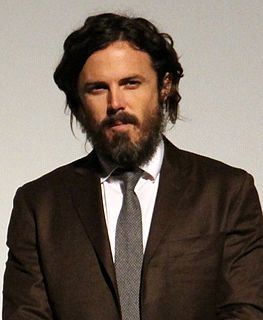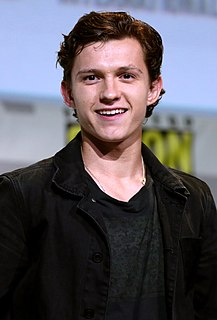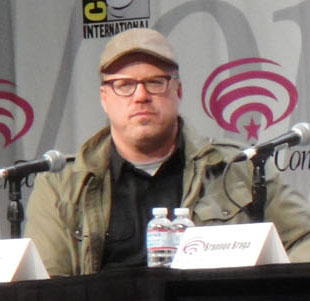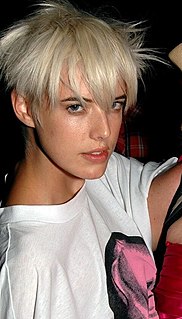A Quote by Tom Stoppard
Rewriting isn't just about dialogue, it's the order of the scenes, how you finish a scene, how you get into a scene. All these final decisions are best made when you're there, watching. It's really enjoyable, but you've got to be there at the director's invitation. You can't just barge in and say, "I'm the writer."
Related Quotes
I've begun to believe more and more that movies are all about transitions, that the key to making good movies is to pay attention to the transition between scenes. And not just how you get from one scene to the next, but where you leave a scene and where you come into a new scene. Those are some of the most important decisions that you make. It can be the difference between a movie that works and a movie that doesn't.
I really like the Chris-R scene and of course the "you are tearing me apart Lisa" scene. The reason I love the Chris-R scene is because we worked really hard to finish it. It's not just that though, it brings people together. Everyone is one the roof together by the end of the scene. You see the perspectives of the different characters. I feel like with all the connections in this scene that the room connects the entire world
I love Kimberly Peirce. Incredibly intense is a good way of describing her. Brutally honest. Really sharp. She's a director for actors. That's what she's best at, sitting down with an actor and just getting to the heart of what a scene is. And getting to the heart of not just what the scene is and the character is, but what you are, and how to build that bridge between the "me" and the character, and those emotions.
Whether it's one scene or 15 scenes in a film, whether it's the lead or a cameo part, if I don't find it interesting, I tend not to do it. You never really know what it is. It could be a one-scene part. I remember I read the one scene in Crash and was asked to do it. I was like, "Absolutely!" There's no formula for how something has to be. I always try to keep it that way.
For me, in movies, it's always a mixed bag. I've never made a movie where I thought, "You were really good in that movie; you were good all the time." No. It's always, "You didn't get it, you didn't do it in that scene, but the other scene is pretty good." So I just hope that in balance there's more good scenes than not.
There weren't any deleted scenes, it was just a matter of tightening stuff. I didn't have any deleted scenes in what I did as far as I know. It's very unusual on Game of Thrones for there to be a deleted scene because the scripts are pretty locked in. There's rarely a reason to say, "Hey, we don't need this scene."
Film and television are very different. On the TV show, we do seven or eight scenes a day, so time and money are of the essence, and we have zero room for creativity because you've got to do each scene in only five takes. Whereas, on a film, you have an entire day to film one scene, so you have so much time to choose how you want to fill in a scene.
People used to say if you really want to crack it you have really got to go to America. But with the Internet and the scene how it is... Americans are coming here more and more. They are looking at what we are doing. I think it's important that we all remain here, that we stay here and keep this scene thriving.
It is captivating, isn't it? England has such a great scene of electronic music, and I think that was very prominent in Pusher, and the nightlife was the beat of the film. I feel what is really great about Pusher is that it wasn't about drugs and guns and strippers. That was just all circumstantial. I felt like it was really about people and how decisions and circumstances can change relationships. Something just happens. Everything changes for a reason.




































